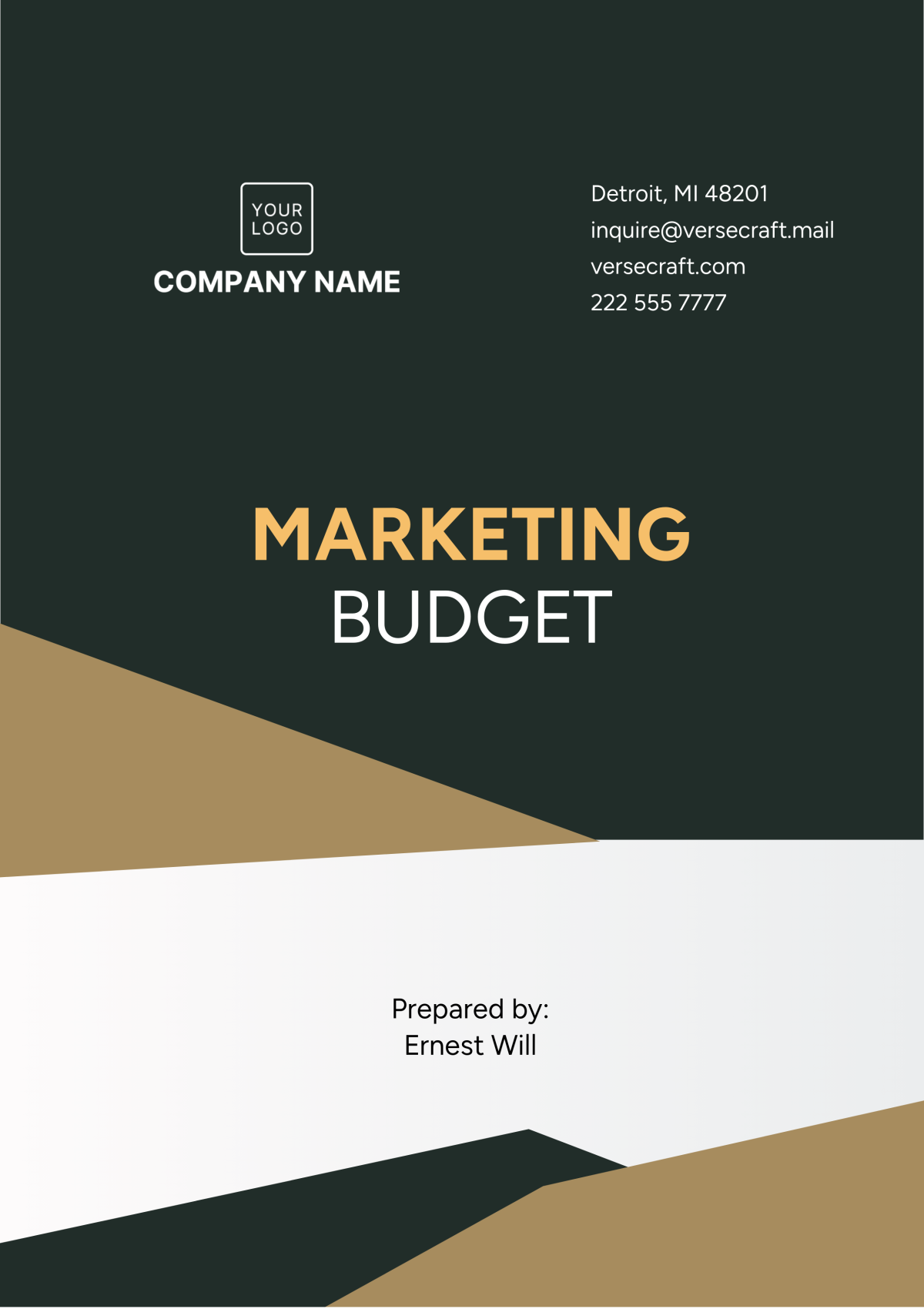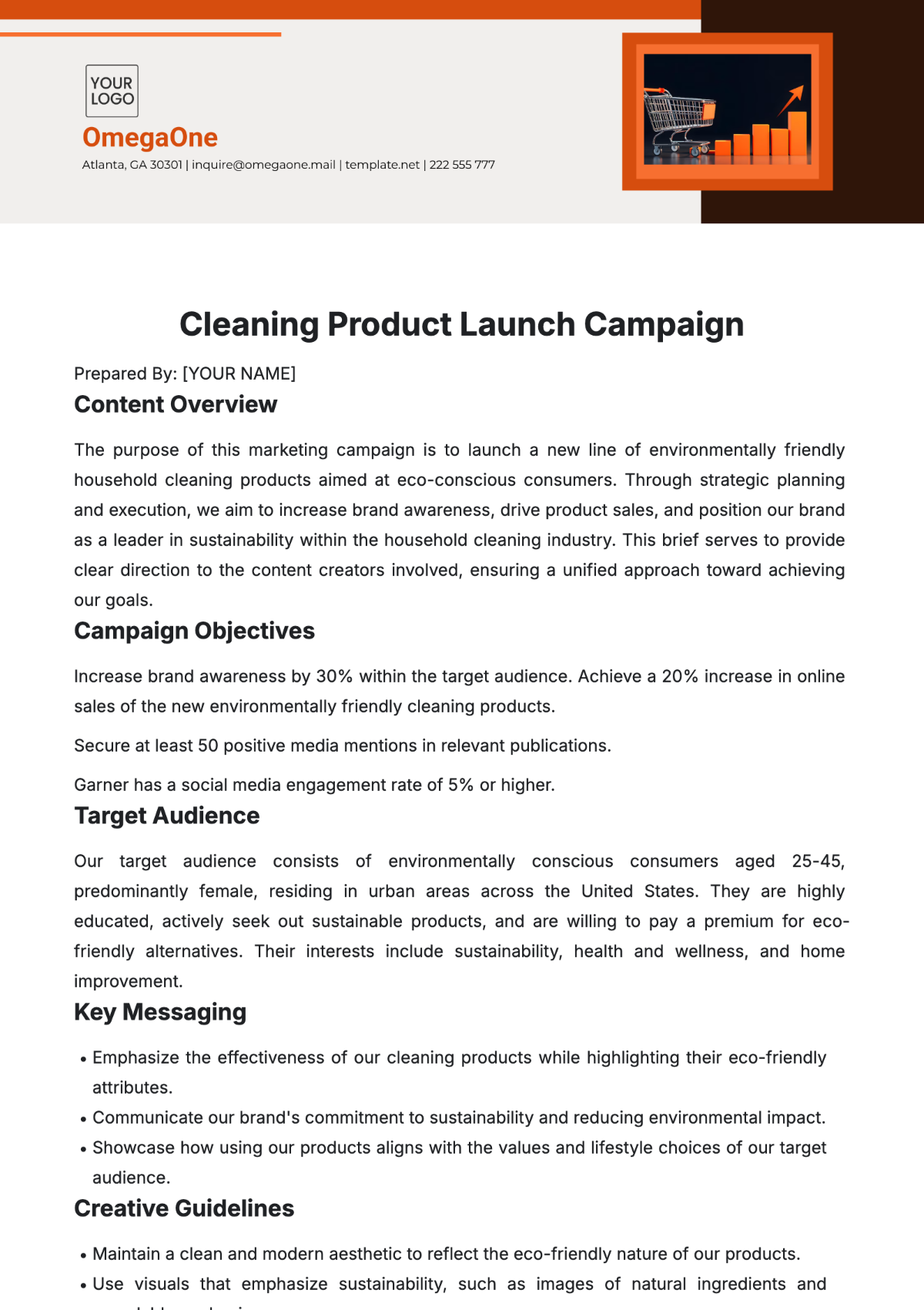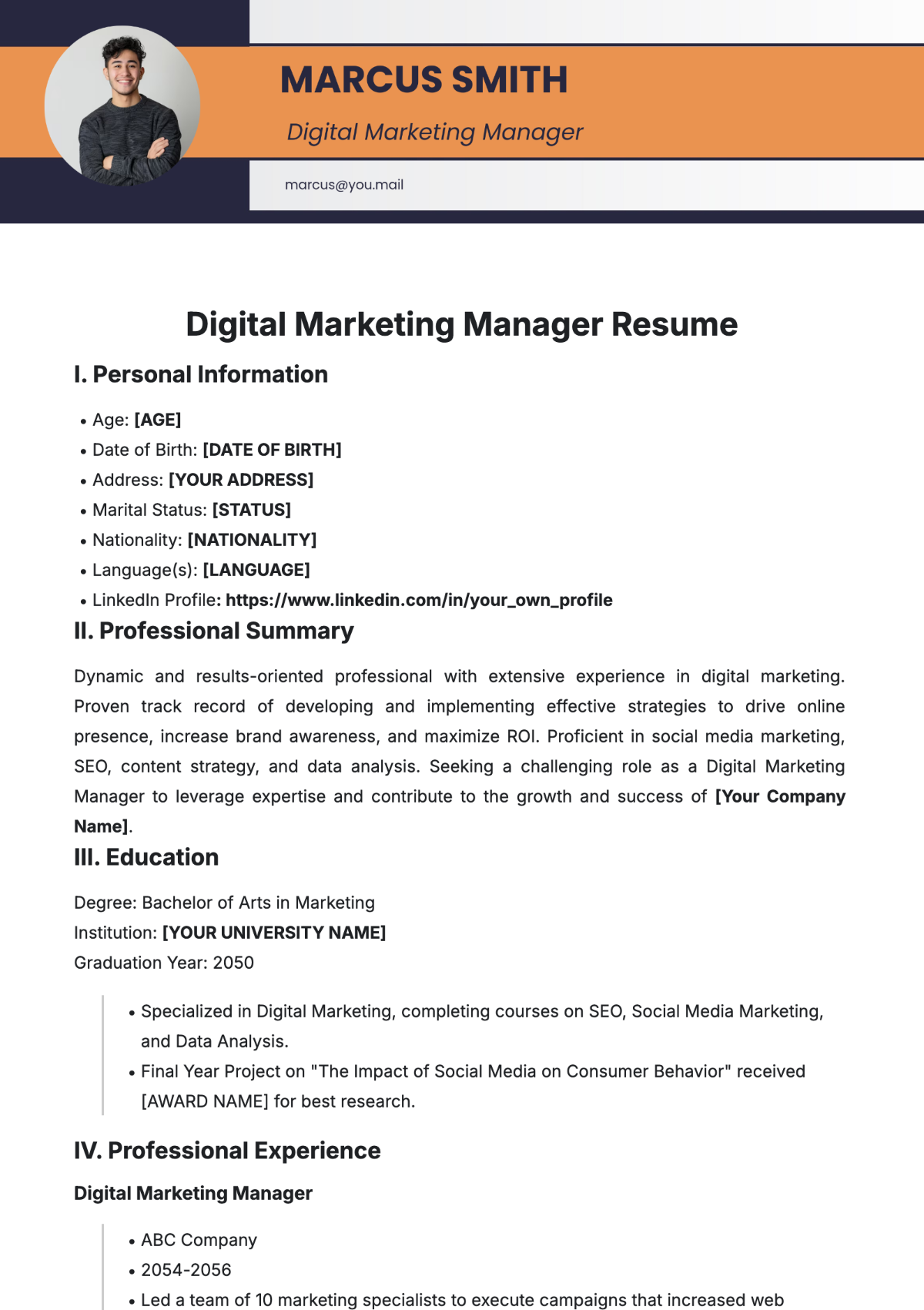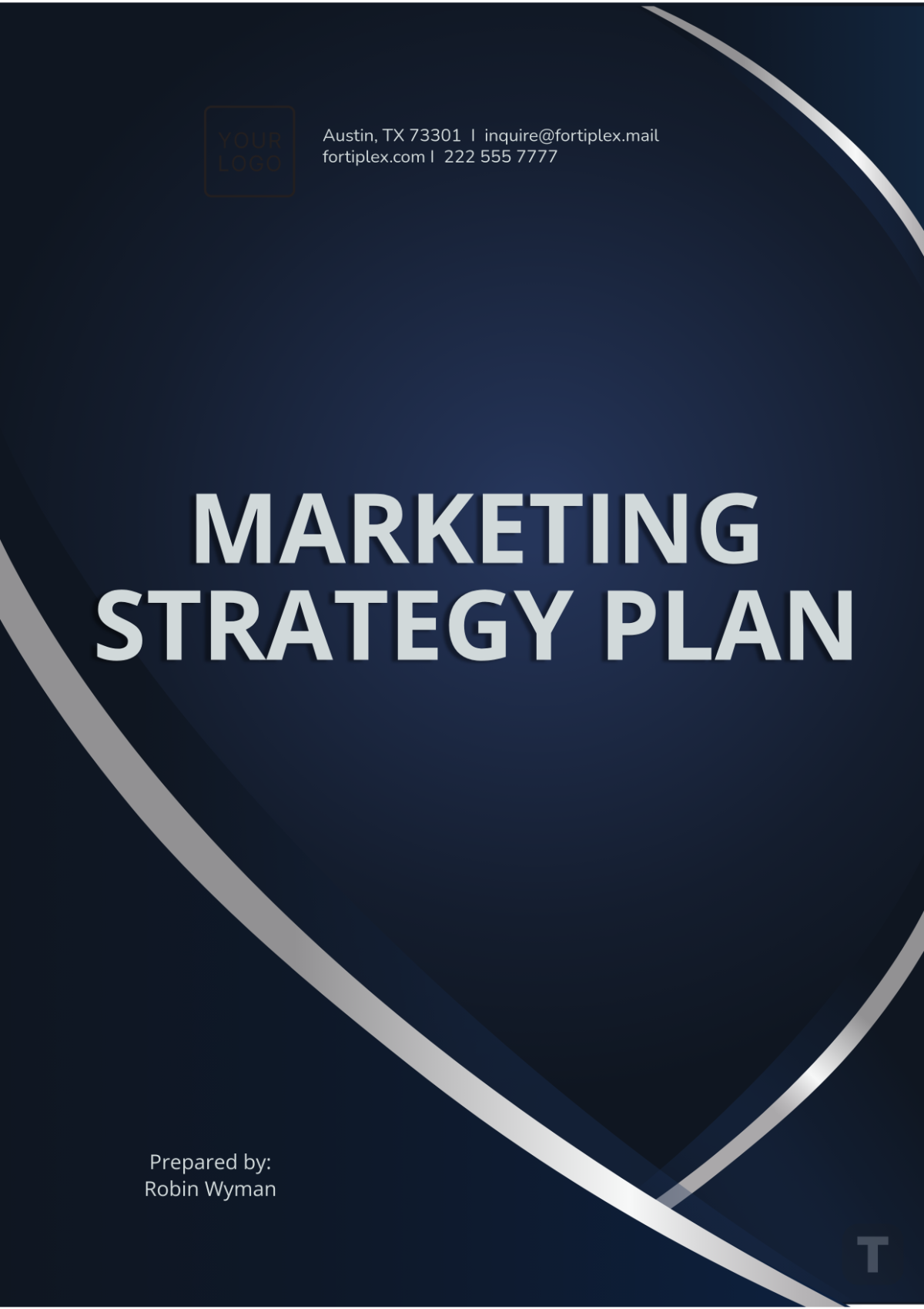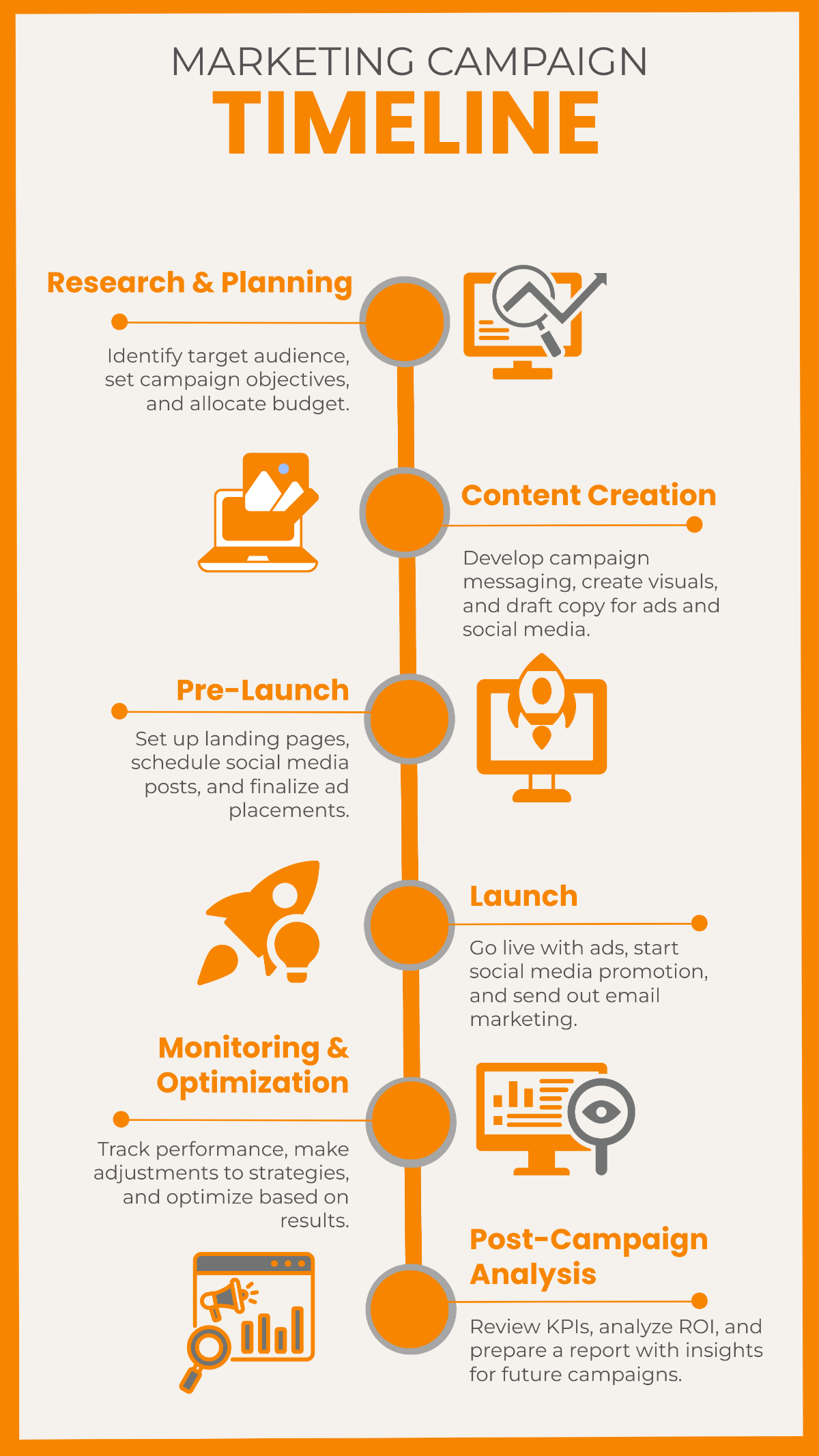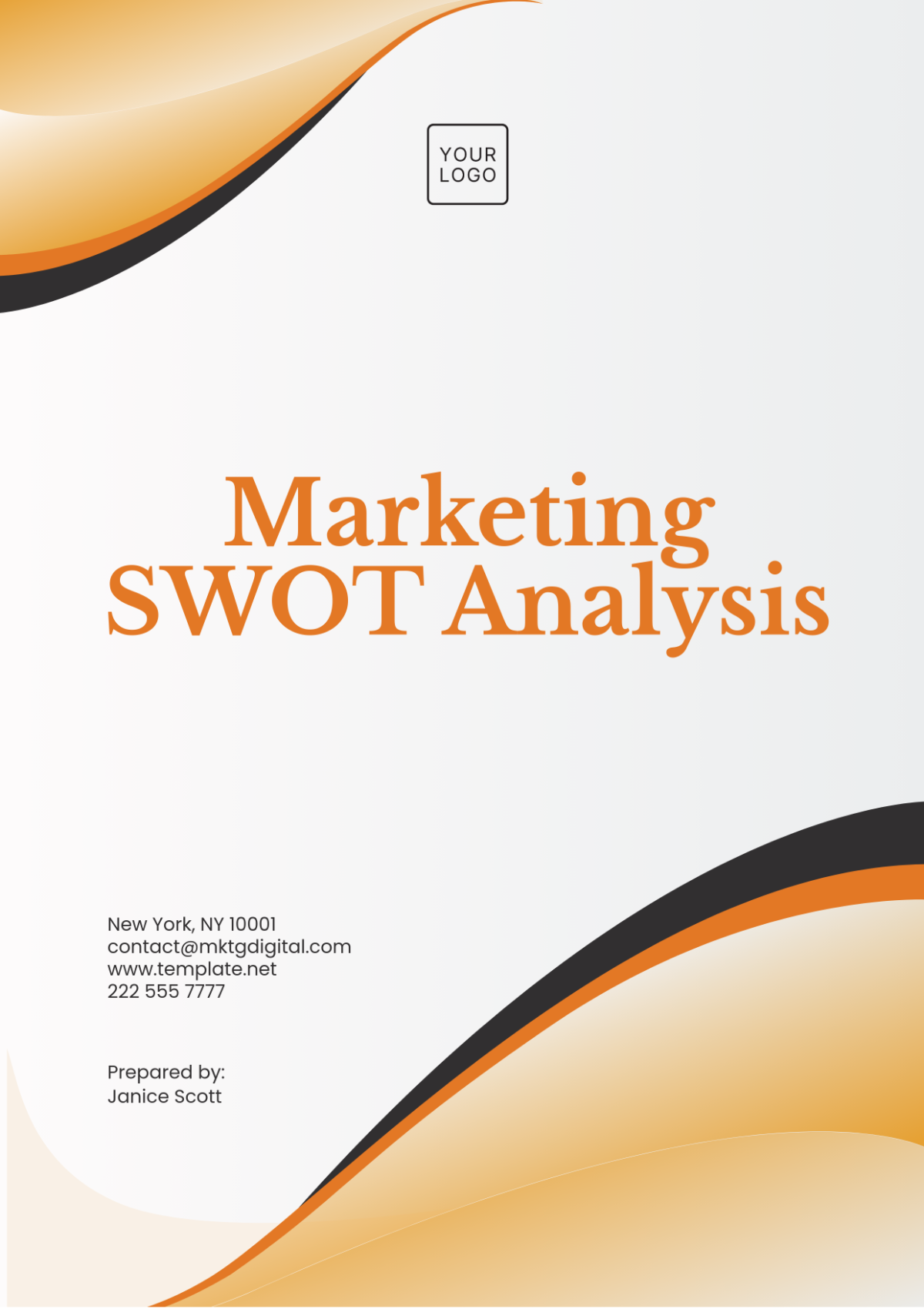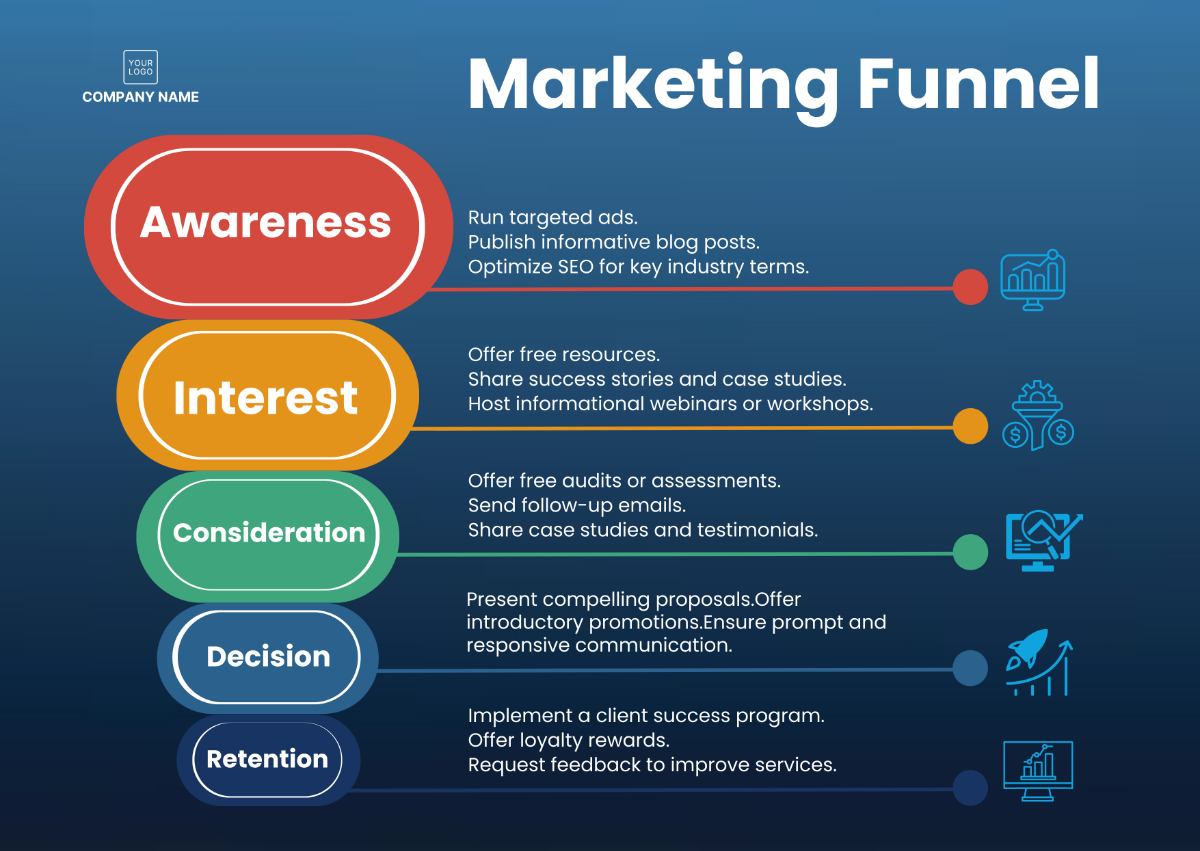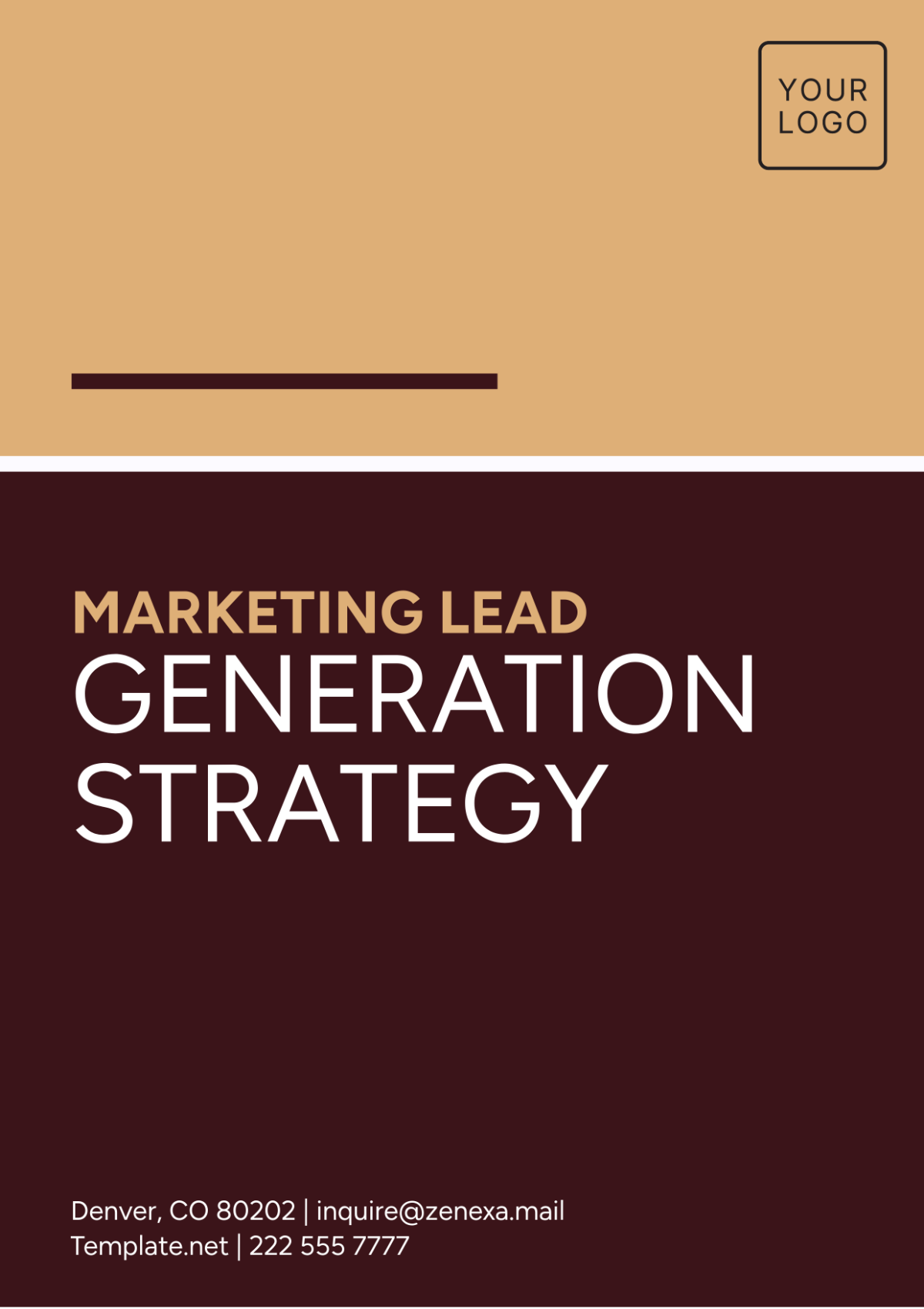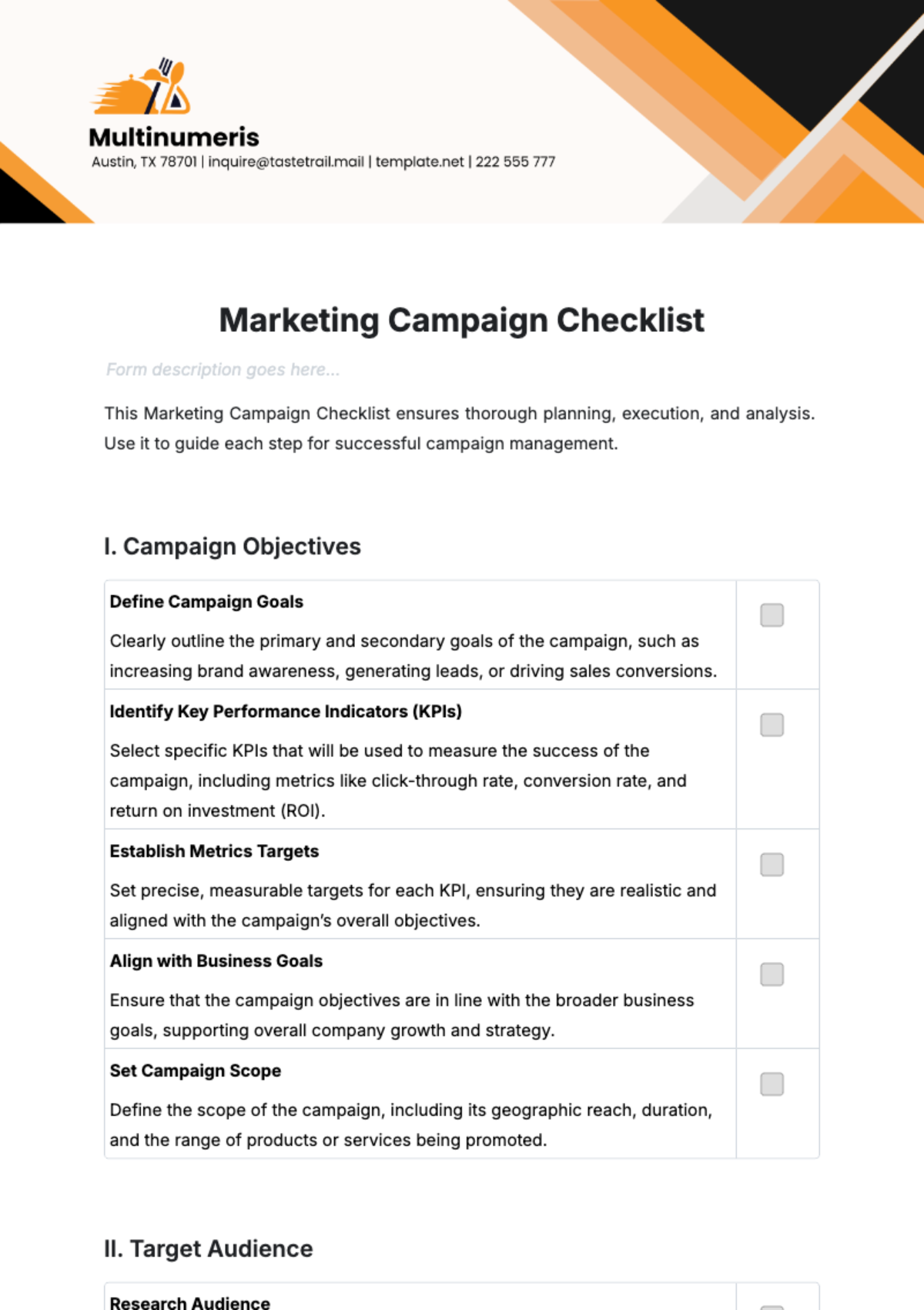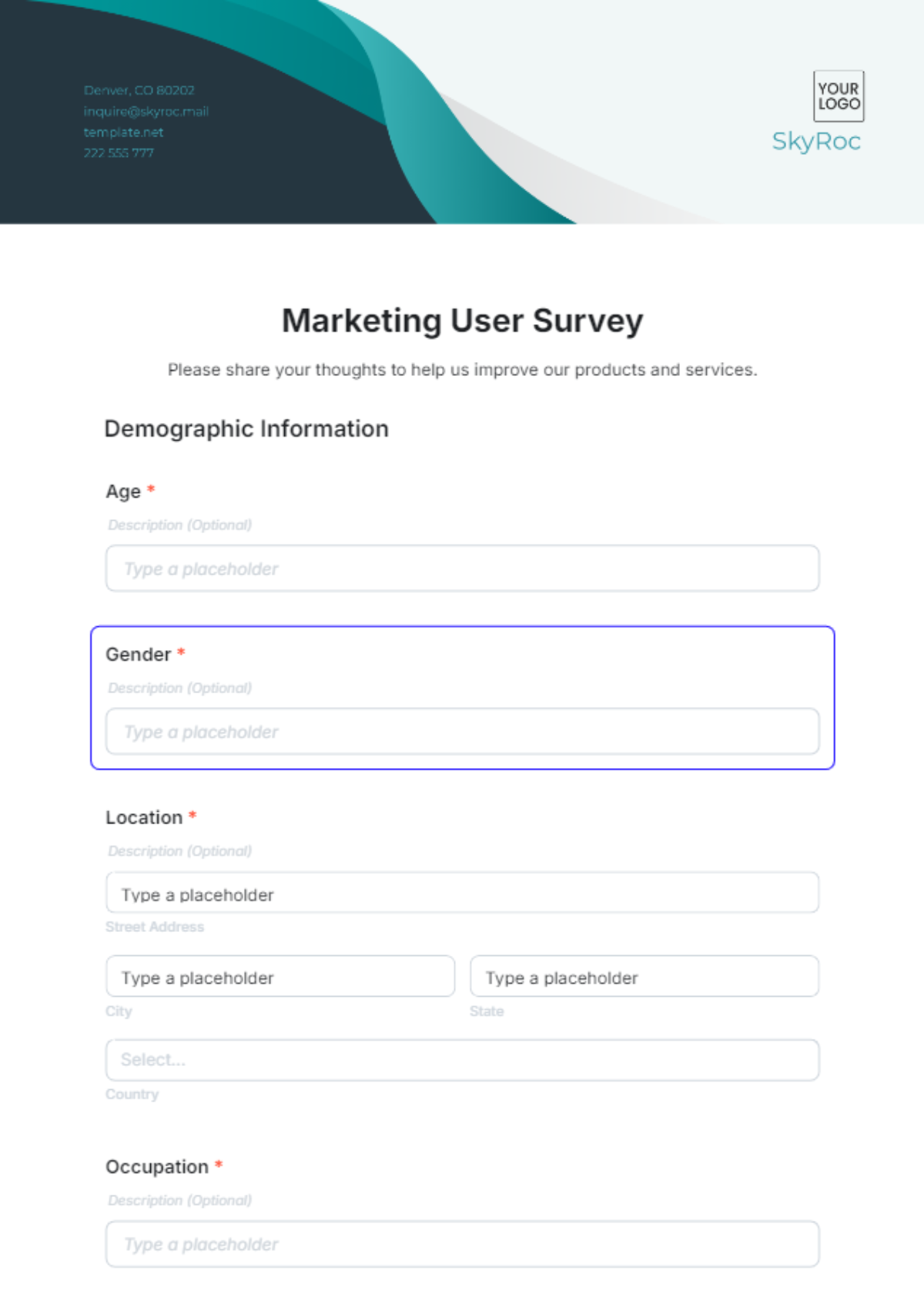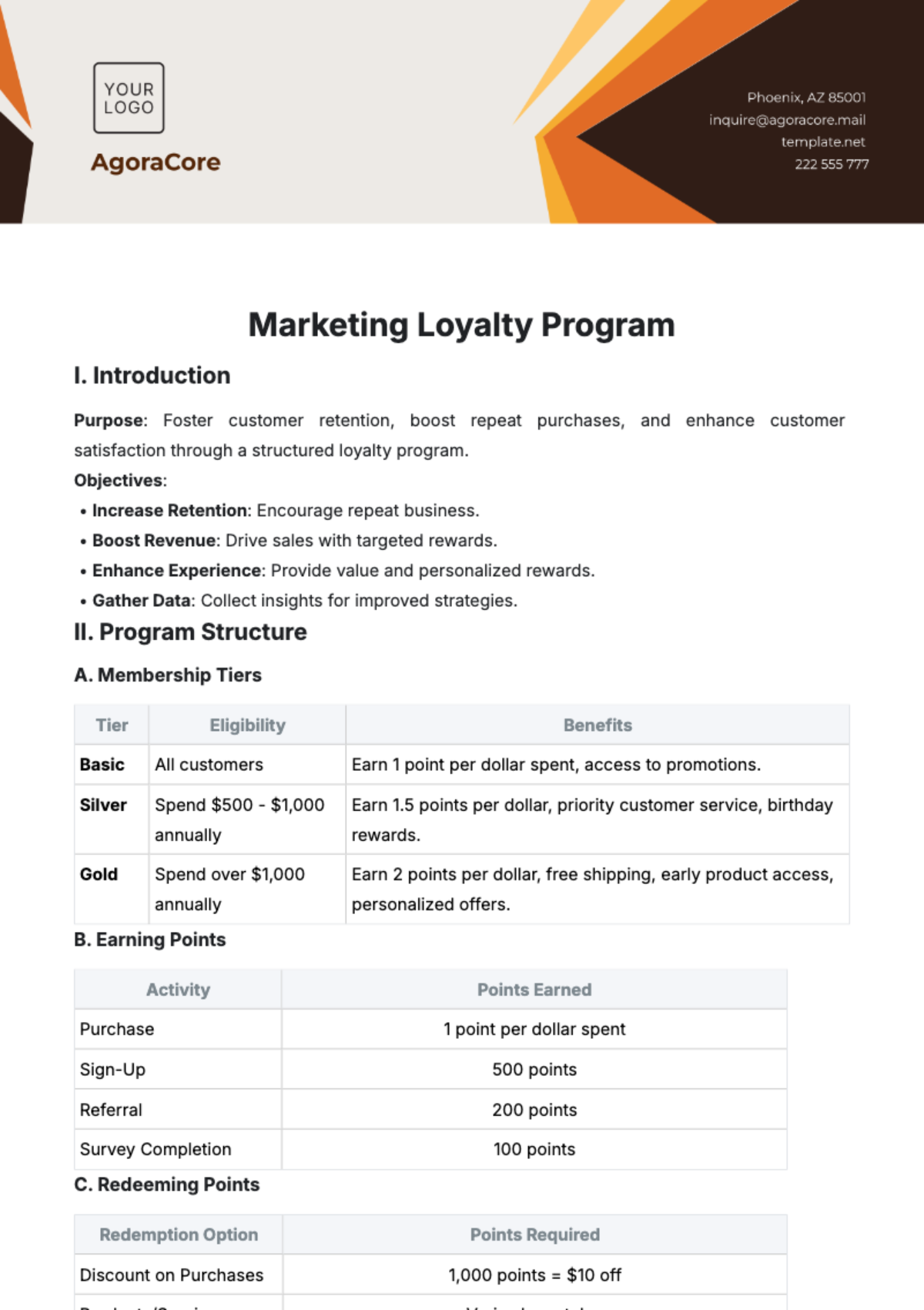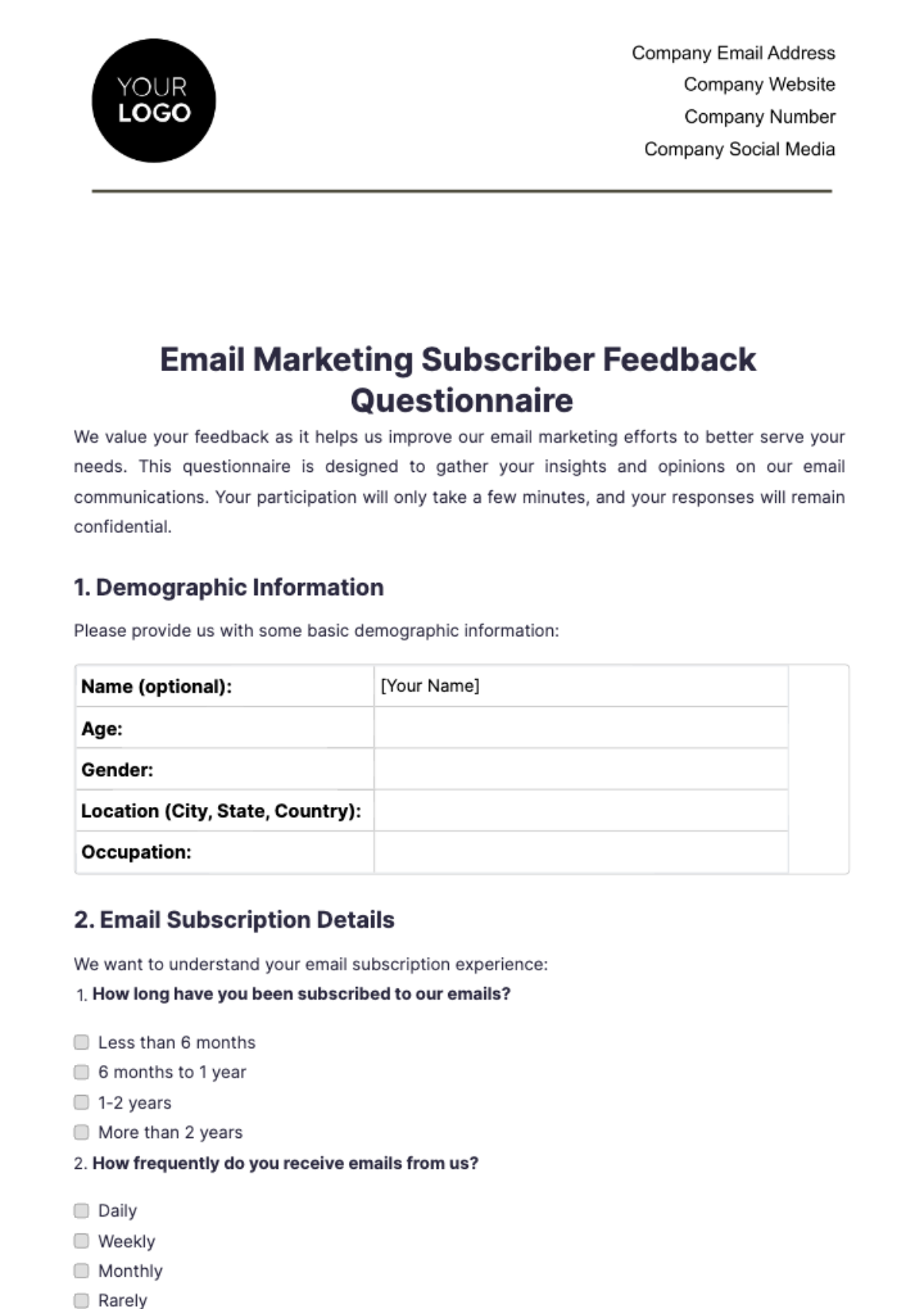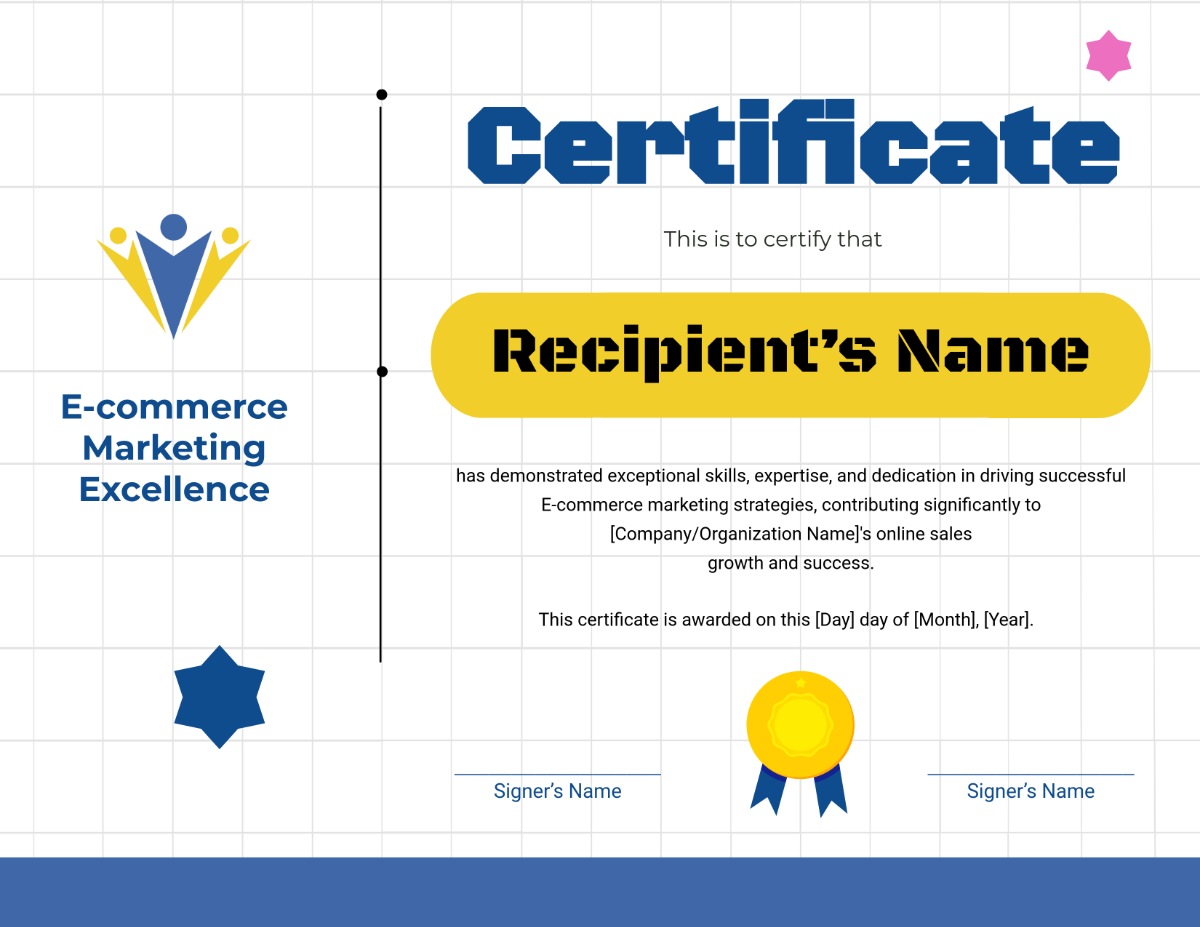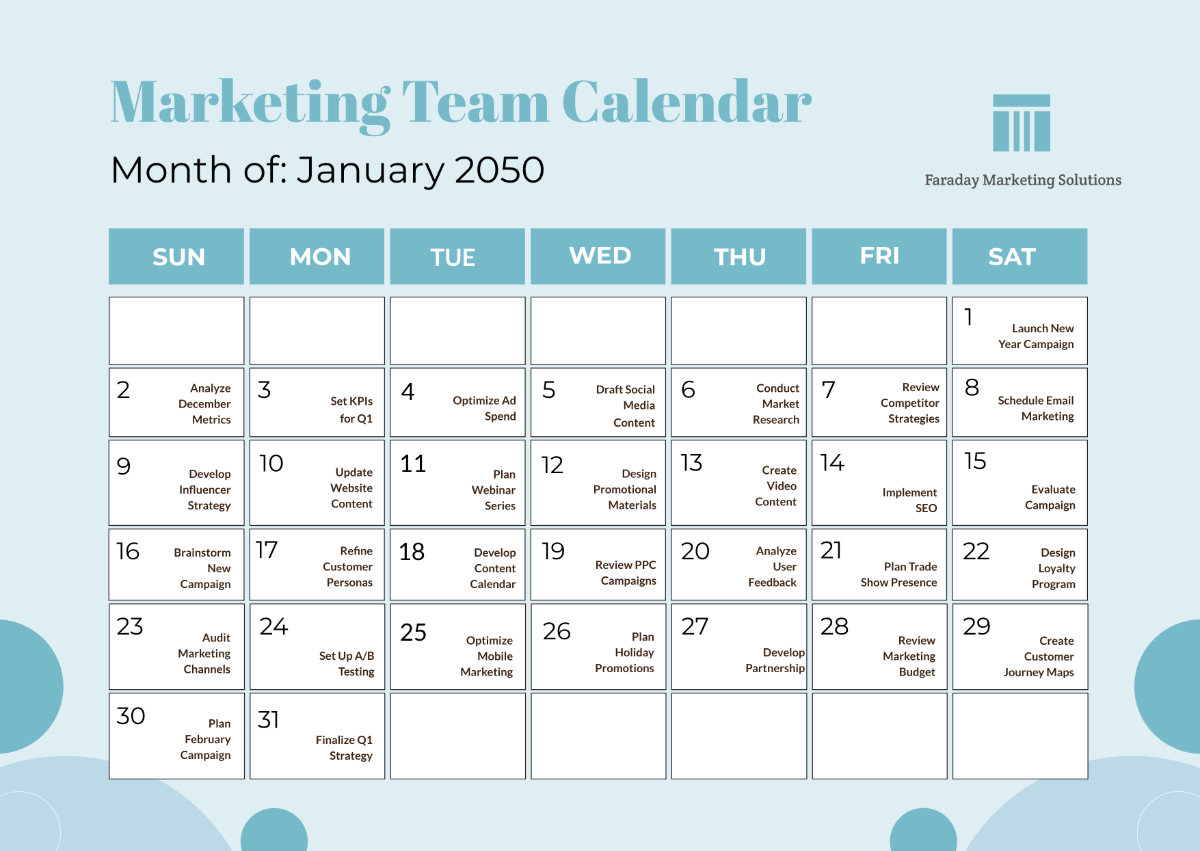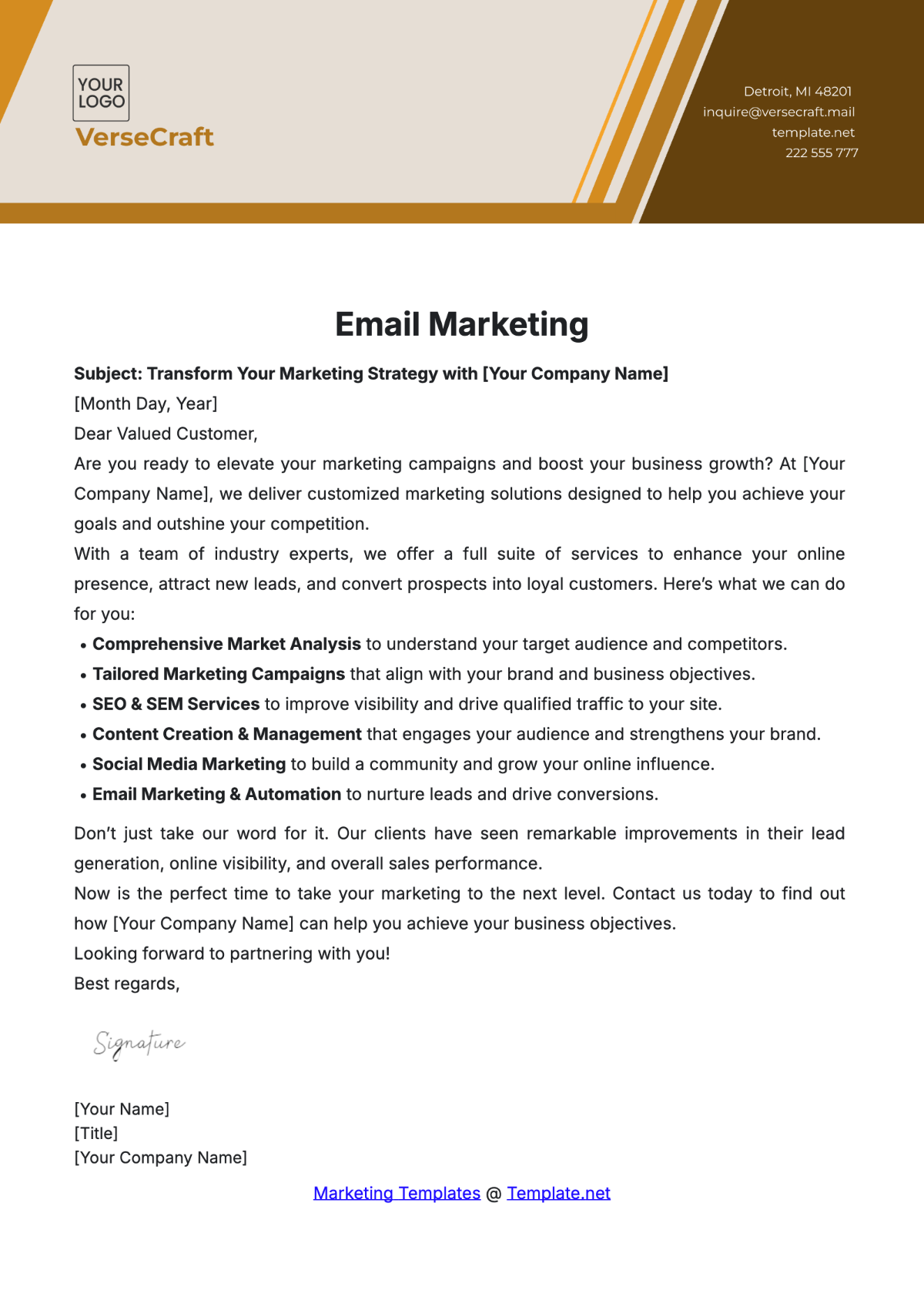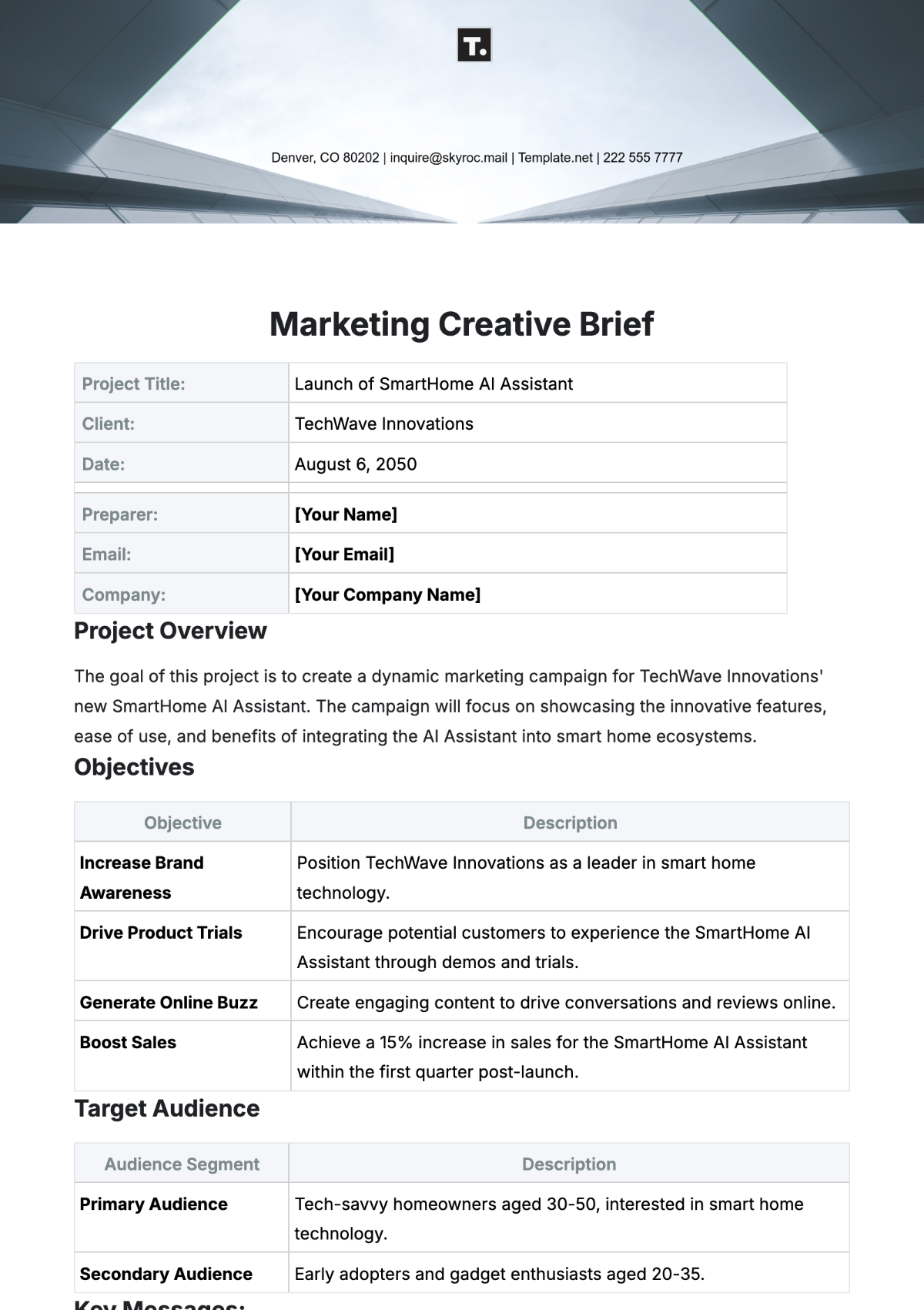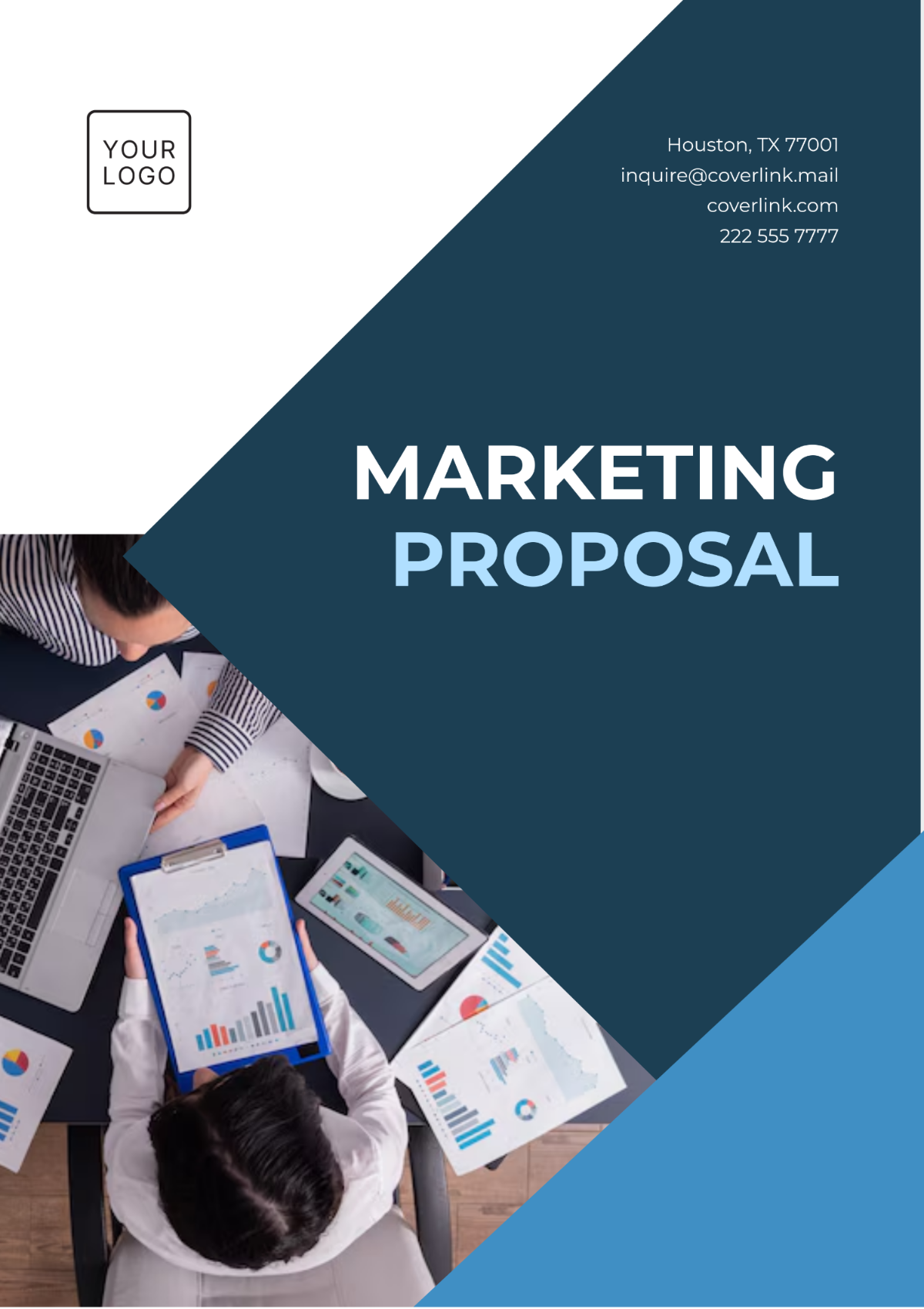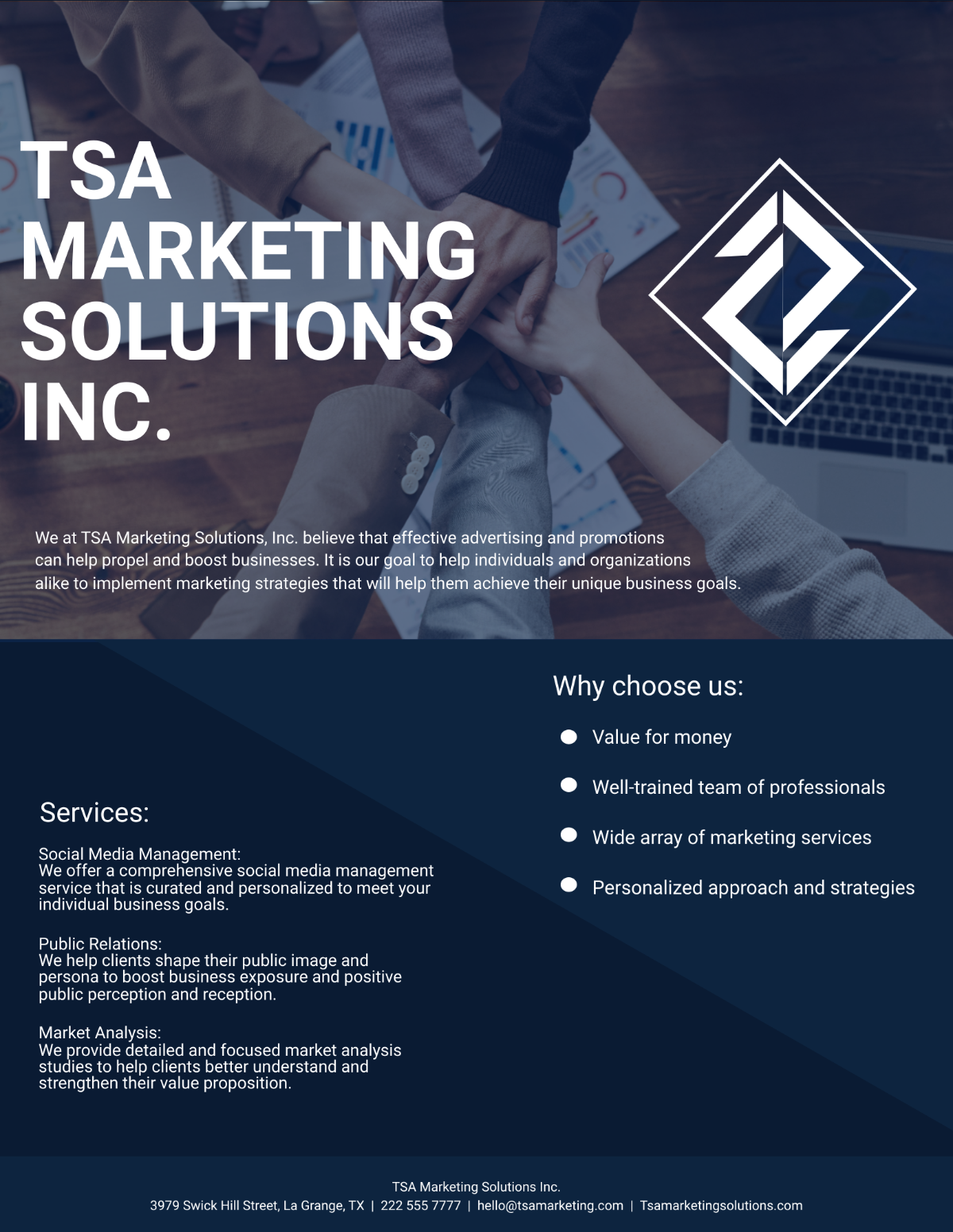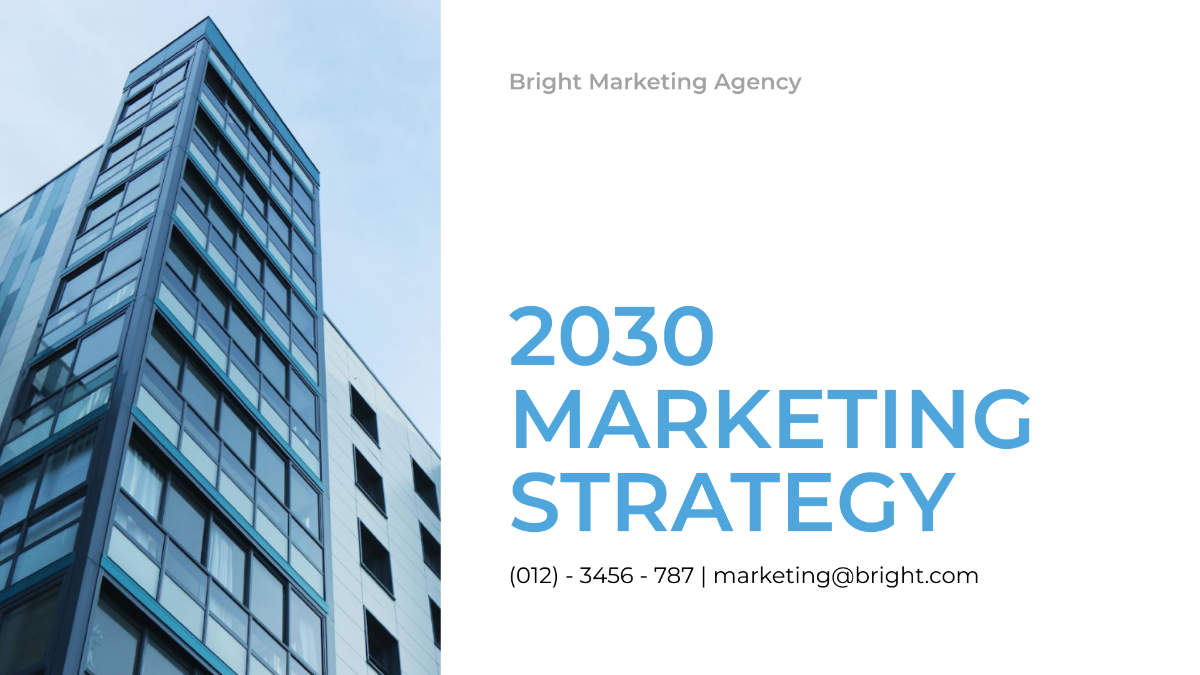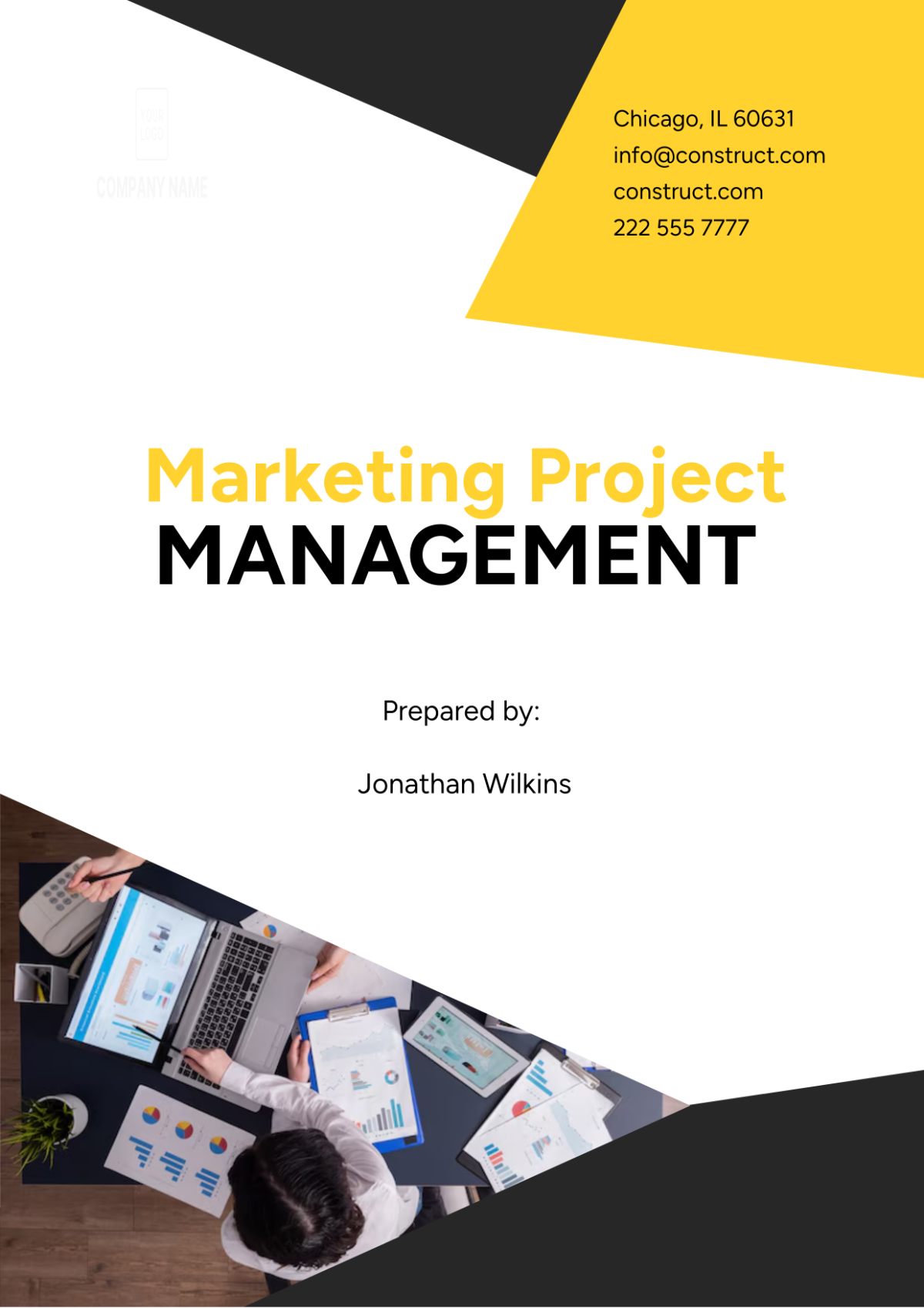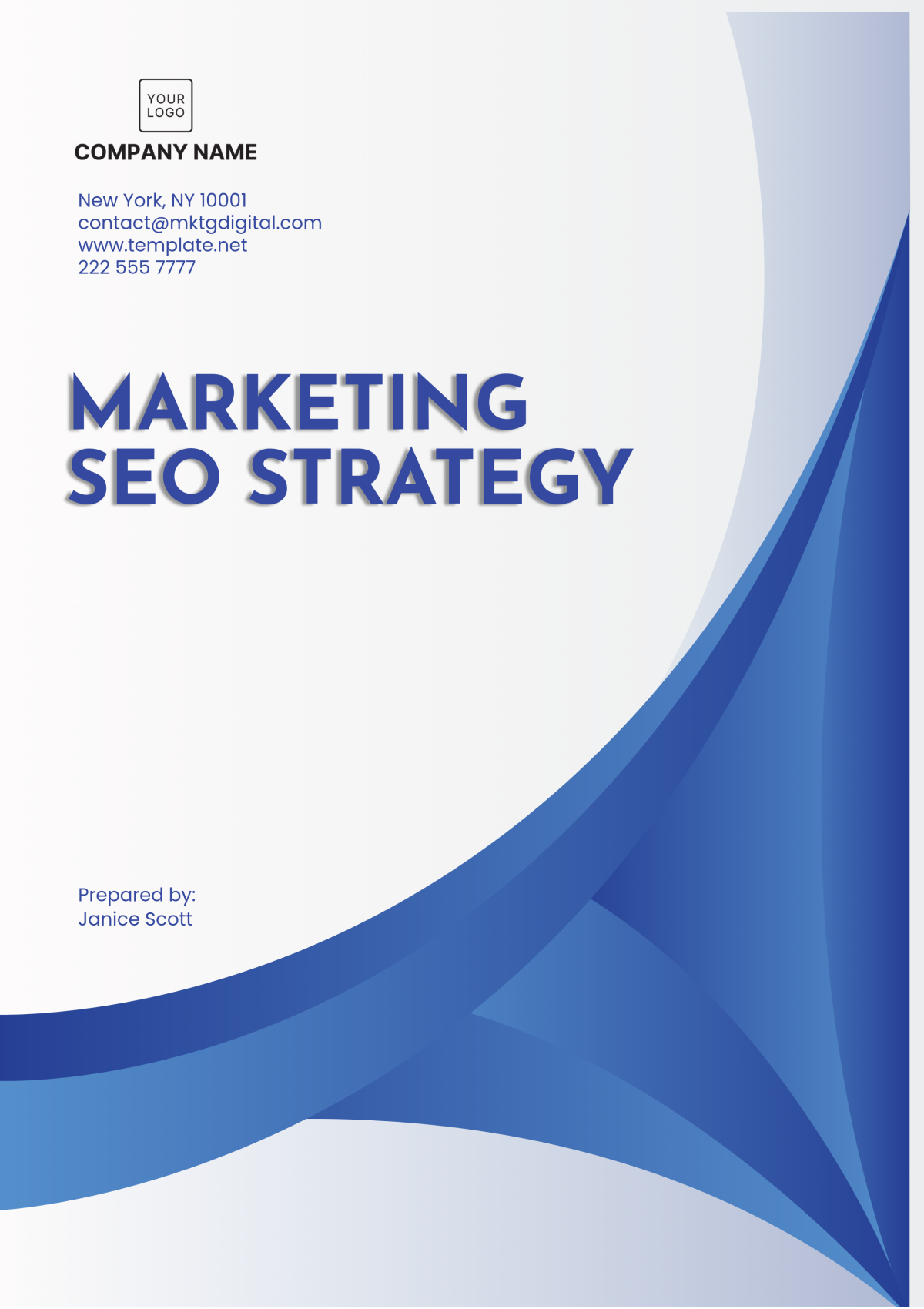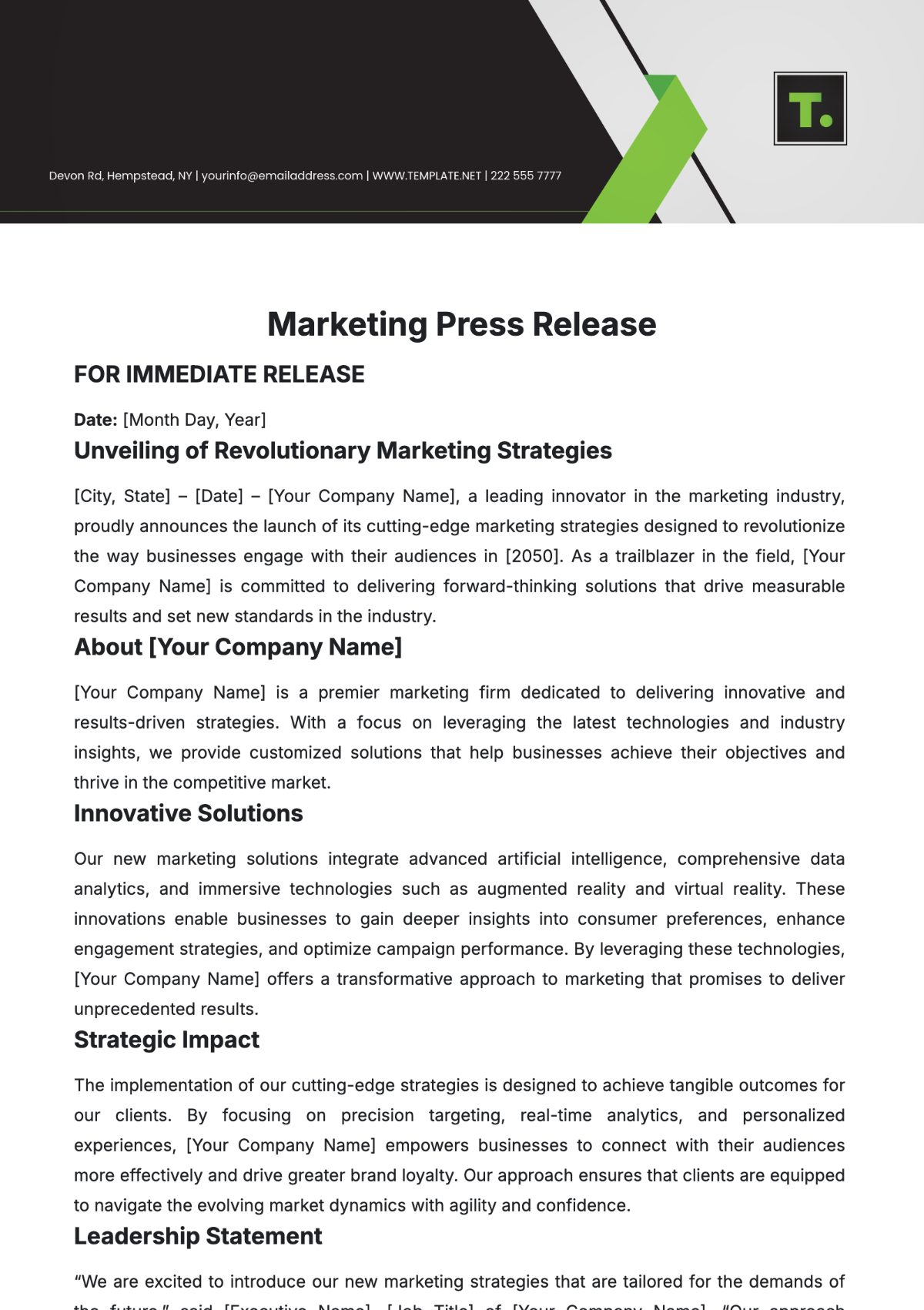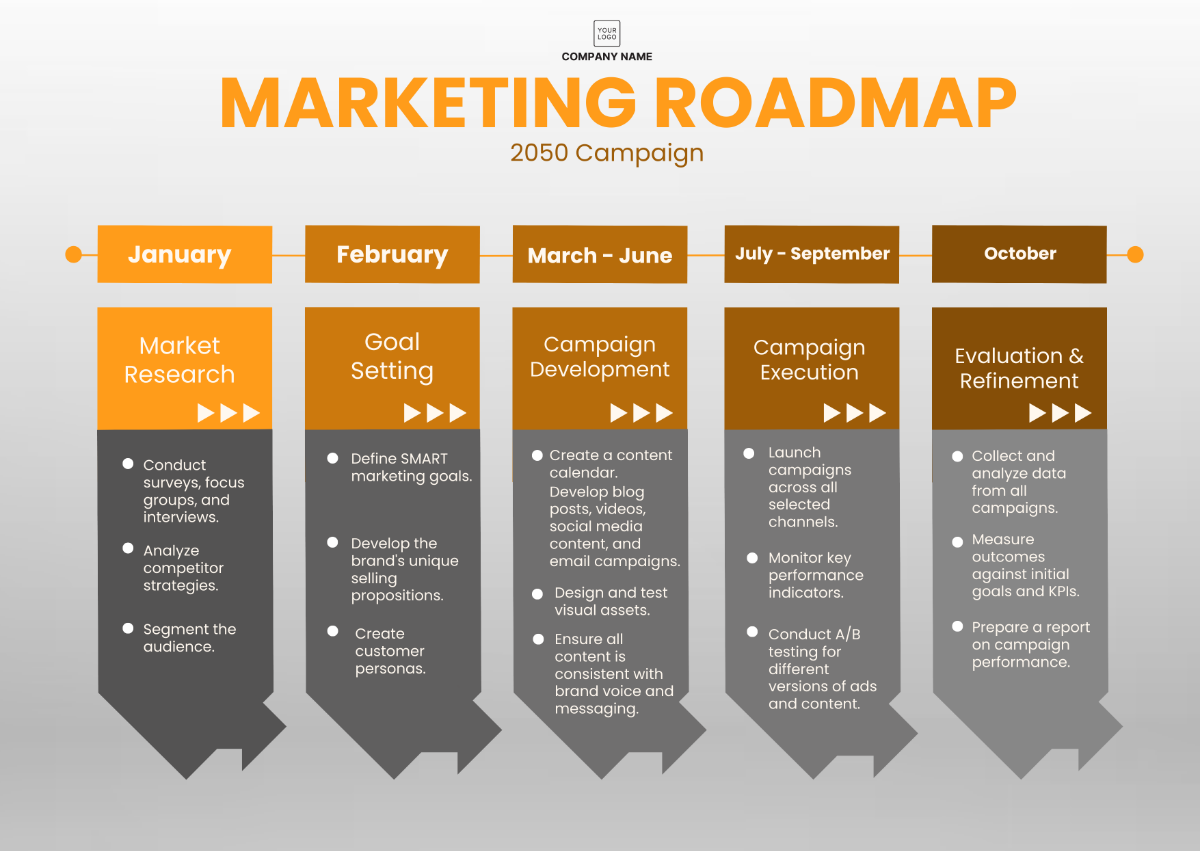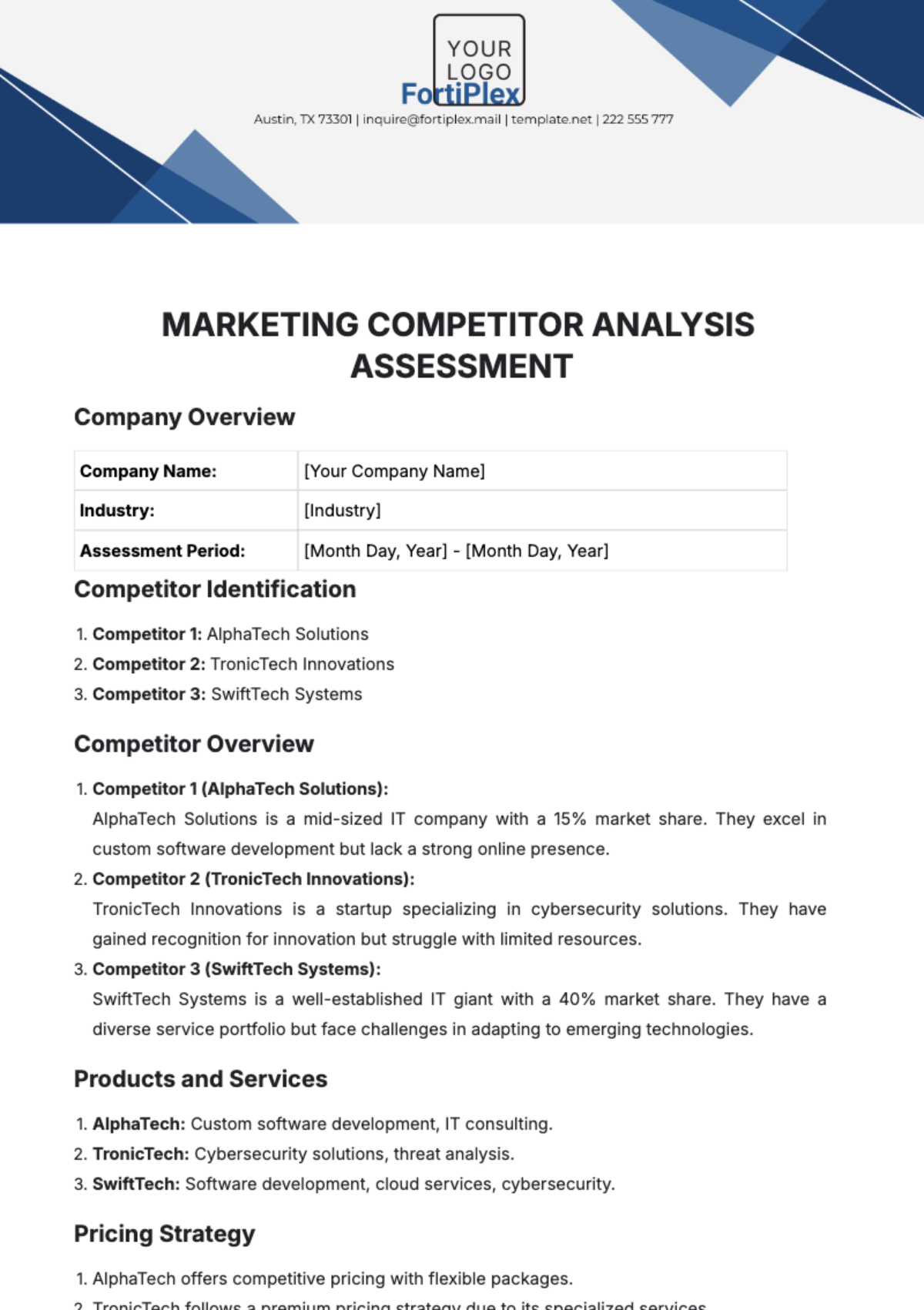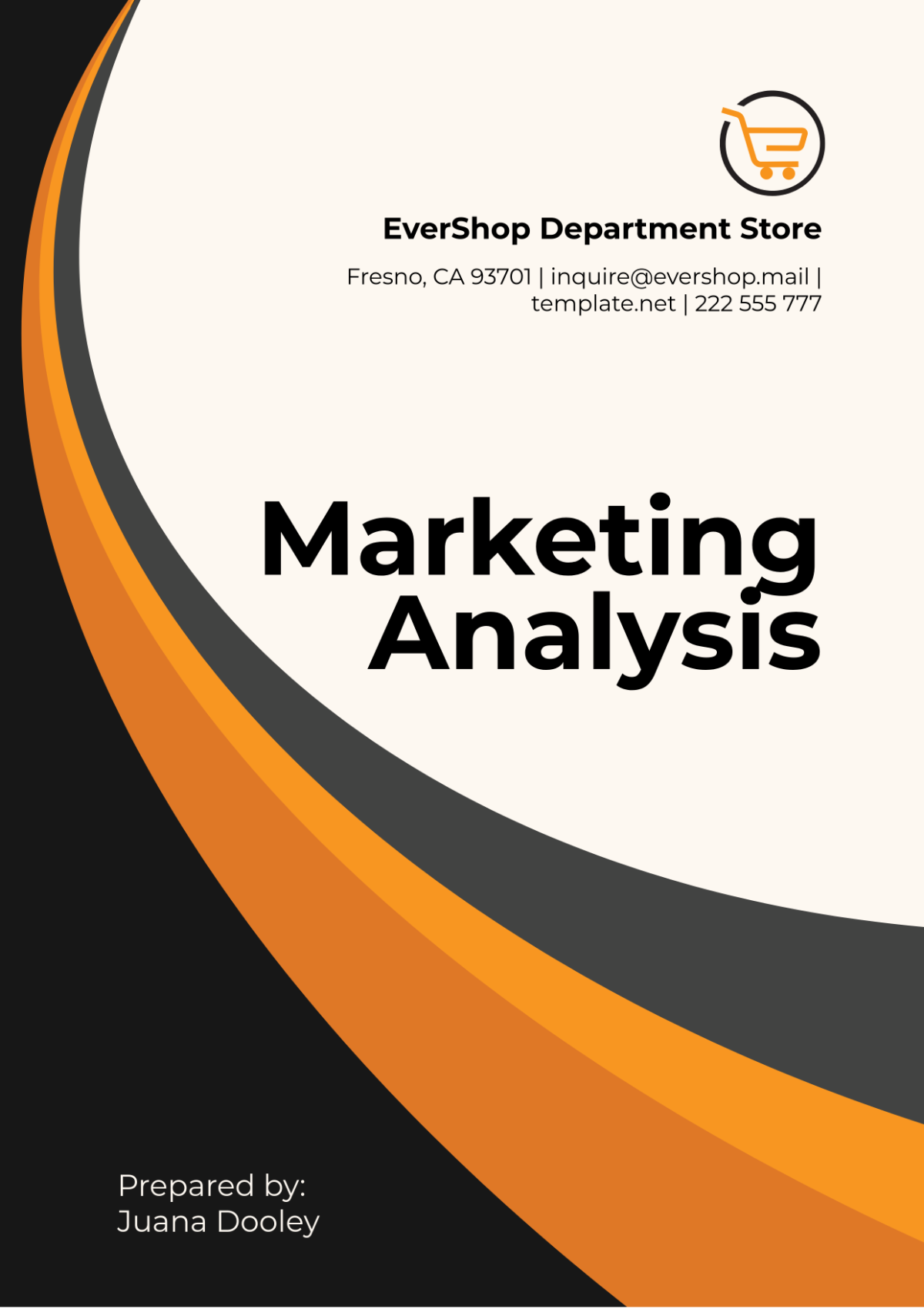Marketing Project Management
I. Executive Summary
This Project Management Plan provides a structured framework for organizing, executing, and evaluating marketing initiatives. It ensures that marketing projects align with company objectives, are completed within the allocated budget and timeframe, and achieve the desired results. This plan is specifically designed to guide the launch of [Your Company Name]’s new product, [Market Master Pro], ensuring a coordinated and effective approach to market introduction.
Project Overview
Project Name: The project, Product Launch Campaign, focuses on the introduction of [Your Company Name]’s latest software product, [Market Master Pro].
Project Objective: The main goal of the campaign is to successfully introduce [Market Master Pro] to the target market. This involves increasing brand awareness by [30%], generating [1,000] qualified leads, and enhancing overall sales conversions by [25%] within [six months].
Scope: The scope of the project includes comprehensive market research, strategic campaign planning, creative design, media buying, execution, and performance analysis. Key activities will involve leveraging digital marketing channels such as social media, email campaigns, and online advertising to reach and engage the target audience.
Stakeholders
Project Sponsor: [Name], Chief Marketing Officer, responsible for overall project approval and funding.
Project Manager: [Name], Marketing Project Manager, who will oversee the project’s execution, ensuring all tasks are completed on schedule.
Marketing Team: Includes Creative Director, responsible for the visual elements; Digital Marketing Specialist, handling online campaigns; Social Media Manager, focusing on social media channels; and Content Writer, creating compelling content.
External Partners: Advertising Agency, for media buying and creative services; Media Buyers, for negotiating ad placements; and Graphic Designers, for producing marketing materials.
II. Project Phases and Timeline
The project is divided into specific phases, each with defined deliverables and deadlines. This phased approach ensures structured progress and efficient management of project activities.
A. Phase 1: Planning
Market Research: Conduct thorough market analysis to understand market trends, competitor positioning, and customer needs. Gather data through surveys, focus groups, and secondary research to identify target audience demographics and preferences.
Campaign Strategy Development: Develop a comprehensive strategy to guide the campaign’s direction and execution. Define clear campaign goals, establish KPIs, and formulate messaging that resonates with the target audience.
B. Phase 2: Development
Creative Design: Create visually appealing and engaging marketing materials. Design campaign assets including graphics, videos, and digital content, ensuring alignment with the campaign's messaging and goals.
Media Planning and Buying: Strategically plan and purchase media placements to maximize reach and effectiveness. Identify suitable media channels, negotiate ad placements, and schedule media buys according to the campaign timeline.
C. Phase 3: Execution
Campaign Launch: Implement the marketing campaign and begin reaching out to the target audience. Execute the campaign across selected channels, monitor performance in real-time, and make adjustments as necessary to optimize results.
Ongoing Management: Manage the campaign to ensure continuous engagement and effectiveness. Track key performance metrics, engage with the audience, and address any issues or opportunities for improvement.
D. Phase 4: Evaluation
Performance Analysis: Evaluate the campaign’s success and measure it against established KPIs. Analyze data collected during the campaign to assess its impact on brand awareness, lead generation, and sales conversions.
Reporting: Summarize the campaign outcomes and provide insights for future initiatives. Prepare a detailed report highlighting successes, challenges, and recommendations for future campaigns.
III. Budget and Resources
The budget and resources section details the financial and human resources allocated to the project. Proper allocation and management are crucial to staying within budget and ensuring the successful completion of the project.
Category | Amount |
|---|---|
Creative Design | $15,000 |
Media Buying | $25,000 |
Market Research | $10,000 |
Content Creation | $8,000 |
Miscellaneous Expenses | $5,000 |
Total Budget | $63,000 |
Creative Design: Funds allocated for developing creative assets such as graphics, videos, and other visual content.
Media Buying: Budget for purchasing ad space and placements across various media channels.
Market Research: Investment in gathering market data and insights to inform the campaign strategy.
Content Creation: Costs associated with writing and producing content for digital platforms.
Miscellaneous Expenses: Reserve funds for unforeseen costs or additional needs.
The budget is strategically allocated to ensure a comprehensive and effective campaign. The largest portions are assigned to media buying and creative design, which are crucial for maximizing campaign reach and impact. Careful monitoring of expenditures will help prevent budget overruns and ensure efficient use of resources.
IV. Risk Management
Risk management involves identifying potential risks that could impact the project's success and developing strategies to mitigate these risks. Proactive risk management helps to minimize disruptions and ensure the project stays on track.
A. Risk Identification
Budget Overruns: There is a risk of exceeding the budget due to unforeseen costs or changes in scope.
Delays in Delivery: Potential delays in creative design or media placement could impact the campaign timeline.
Poor Campaign Performance: The risk of not achieving the desired results or KPIs due to ineffective strategies or execution.
Technical Issues: Possible technical problems with online platforms or ad placements that could affect campaign performance.
B. Risk Mitigation Strategies
Budget Monitoring: Implement regular budget reviews and cost control measures to prevent overruns.
Timeline Management: Develop a detailed project timeline with buffer periods to accommodate potential delays.
Performance Tracking: Continuously monitor key metrics and make adjustments to strategies based on performance data.
Technical Support: Ensure access to technical support for resolving any issues promptly and minimizing disruptions.
V. Key Performance Indicators (KPIs)
KPIs are essential for measuring the effectiveness of the marketing campaign and determining whether objectives are being met. Clear KPIs provide a benchmark for evaluating success and making informed decisions.
Category | Metric | Target |
|---|---|---|
Brand Awareness | Increase in website traffic and social media followers. | 30% increase |
Lead Generation | Number of qualified leads generated. | 1,000 leads |
Sales Conversions | Conversion rate from leads to sales. | 25% increase |
Social Media Engagement | Engagement rate (likes, shares, comments). | 50% increase |
VI. Conclusion
This Marketing Project Management Plan outlines the structured approach [Your Company Name] will take to ensure the successful launch of [Market Master Pro]. By adhering to this detailed plan, [Your Company Name] will effectively manage the launch of [Market Master Pro]. With a clear strategy, defined milestones, and proactive risk management, the project is well-positioned to meet its goals and deliver significant results.

